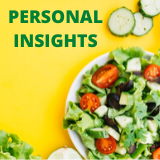
This month’s newsletters will review the top homeowners insurance claims, how distracted driving can boost your insurance rates and tips to eating healthy on a strict budget.
Download the full version of this Personal Insights Newsletter
HOME
Top Homeowners Insurance Claimshome
As a homeowner, you do everything you can to protect yourself from loss. Although some claims may be out of your control, being aware of common causes of insurance claims can help you prepare when faced with loss. The top homeowners insurance claims include:
- Wind and hail damage—Damages from wind and hail are the most common homeowners insurance claims. Severe winds and hail can strip the siding off of your home, damage your roof and even break windows.
- Fire and lightning damage—A recent study by the Insurance Information Institute found that fire and lightning claims are the most expensive, costing an average of $68,322 per claim. Faulty wiring, heating equipment and fireplaces are all common causes of household fires.
- Water damage—Frozen pipes, sewage backups and various plumbing issues can lead to severe water damage. Remember, damages caused by flooding are typically not covered under a standard homeowners insurance policy.
- Personal liability—Personal liability claims are made when a person or their property is damaged while visiting your home. In most cases, you are held responsible for paying any medical bills or repair costs for the damaged property.
- Theft—Although theft is less common than other claims on this list, it can still contribute to severe loss. To protect your home from theft, consider installing a home security system.
Contact your broker today for more information on what perils are covered under your homeowners insurance policy.
AUTO
Distracted Driving Boosting Insurance Rates
Recent studies have shown that receiving a distracted driving violation can increase your auto insurance premiums by an average of 19.7%. Insurance penalty amounts can vary by state, with some states issuing penalties that may raise your annual insurance rates by 56%.
With car insurance premiums already at an all-time high, it’s important to eliminate the following driving distractions to avoid a penalty:
- Texting, talking or playing on your phone
- Tinkering with the stereo or navigation systems
- Eating food or drinking beverages
- Interacting with the passengers in your vehicle
Whether it’s using software to track a driver’s smart phone usage while on the road, or by continuing to boost driver penalty amounts—insurers are working to penalize those contributing to this dangerous epidemic. Be sure to minimize distractions in order to avoid costly premium increases.
WELLNESS
Eating Healthy on a Budget
There is a common misconception that eating healthy is too costly. With preparation, discipline and a little bit of creativity, choosing healthier food options can actually save you money. Check out the following tips for eating healthy on a strict budget:
- Create a budget for groceries. Food can get expensive fast—figure out how much money you are willing to spend on groceries every week, or month.
- Plan out your meals for the week. Knowing what’s for dinner every night can keep you out of the drive-thru lines and on a consistent schedule.
- Make a grocery list. This helps you stay within your budget and avoid purchasing unnecessary products.
- Look for coupons and sale items. Before going to the store, look for any sales or valuable coupons that could save you money.
- Eat a light snack before grocery shopping. When you shop on an empty stomach, you are more likely to purchase excess food that can run up your grocery bill.
- Use cash when buying groceries. Paying your grocery budget in cash can help you be more conscious of what you’re spending.
- Purchase fresh foods when possible. Fresh ingredients are often cheaper, more filling and have greater health benefits than processed or canned foods.
- Learn to love your leftovers. When cooking dinner, always try to make extra servings that you can eat throughout the week. Eating leftovers can help stretch your food budget.

Employee Spotlight: Mark Hairston
Please help us welcome Mark Hairston to the Seubert Team as our General Industries Practice

The Health Benefits of Walking
By boosting physical fitness and enhancing mental well-being, incorporating regular walks into your routine can

Nip Seasonal Allergies in the Bud
The Centers for Disease Control and Prevention reports that one-quarter (25.7%) of adults suffer from

